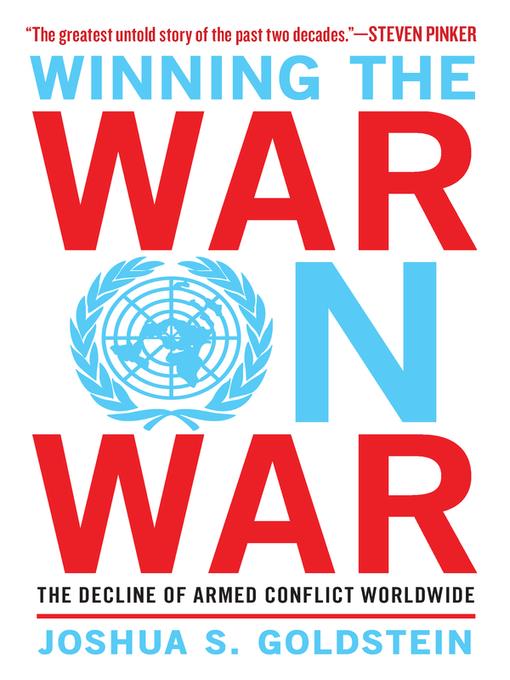
Winning the War on War
The Decline of Armed Conflict Worldwide
کتاب های مرتبط
- اطلاعات
- نقد و بررسی
- دیدگاه کاربران
نقد و بررسی

September 19, 2011
American University professor and international relations expert Goldstein argues that military conflicts are on the retreat globally. Using analysis and statistics, he rebuts the claim that the 20th century was among the bloodiest in human history, that civilian casualties in warfare have been increasing as a proportion of total casualties, along with violence against women, and that the number of wars being fought has been increasing since World War II. Goldstein contends that peace is a worthwhile objective for its own sake, even without other causes, such as social justice or economic reform. Goldstein reviews the history and development of U.N. peace keeping operations from their inception under Ralph Bunche and Count Bernadotte in Palestine, and while surveying the world's ongoing armed struggles, he presents leading peace research institutes (such as the one in Uppsala, Sweden) and researchers (such as the late Randy Forsberg on nuclear weapons). In addition, he reveals the flawed nature of casualty estimates based on epidemiological models that were employed for the Congo and Iraq. The result is an optimistic, if controversial, assessment by a respected anti-war advocate.

July 15, 2011
A surprising study that suggests warfare is decreasing and growing less intense, coupled with a strident defense of peacekeeping and the United Nations.
Goldstein (School of International Service, American Univ.; The Real Price of War: How You Pay for the War on Terror, 2004, etc.) writes that most people believe "wars are getting worse all the time," based on daily coverage of atrocities and misunderstood (but oft-repeated) statistics. "In fact," he writes, "worldwide, wars today are measurably fewer and smaller than thirty years ago." The author suggests the general public misses the significance of the post-Cold War decline of interstate wars, and focuses on isolated horrors in troubled, impoverished regions like the Congo, instead of perceiving how warfare is becoming less lethal overall. He supports this claim by providing an overview of the conflicts that have "cooled" since 1980, such as the "dirty wars" of Central America and other proxy conflicts between the superpowers, as well as depicting a zone of continuing violence that stretches from Iraq and Afghanistan through Somalia and Congo, which he terms "midsized" wars. Goldstein points out that the lethality of the two World Wars has distorted our historical memory; in fact, societies were exceptionally violent prior to the 19th century. Still, he argues that the complex downward trends he tracks are due principally to the influence of the UN and its peacekeeping endeavors. Thus, he presents a compact narrative of the UN's post-WWII foundation and the unexpected influence of early leaders like Dag Hammarskjold, "the ideal of an independent, activist secretary-general" prior to his death in the field, as well as a lengthy examination of the organization's clearest successes and failures. The UN's first peacekeeping mission began in the Congo in 1960, in the chaotic aftermath of colonialism; since then, it has had both defused conflict successfully, as in Namibia and Cambodia, and suffered humiliating setbacks, as in Rwanda and Bosnia. Goldstein writes in an alert, clearly argumentative fashion, but barrages readers with long, somewhat repetitive chunks of analysis.
Optimistic, useful history of diplomacy as counterweight to brutality.
(COPYRIGHT (2011) KIRKUS REVIEWS/NIELSEN BUSINESS MEDIA, INC. ALL RIGHTS RESERVED.)

























دیدگاه کاربران